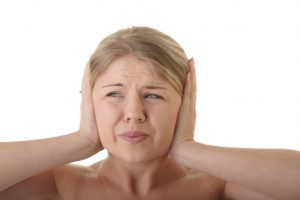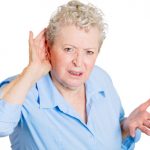 Meniere’s disease can lead to symptoms such as vertigo, tinnitus and hearing loss. Eventually Meniere’s disease can progress to deafness. Meniere’s disease is a dysfunction of the endolymphatic sac in the inner ear – also known as the labyrinth. The labyrinth system consists of small fluid-filled channels that send signals to the brain.
Meniere’s disease can lead to symptoms such as vertigo, tinnitus and hearing loss. Eventually Meniere’s disease can progress to deafness. Meniere’s disease is a dysfunction of the endolymphatic sac in the inner ear – also known as the labyrinth. The labyrinth system consists of small fluid-filled channels that send signals to the brain.
Estimates show that one in every 1,000 people has Meniere’s disease; it can occur at any age but is most commonly found in people over the age of 40. The National Institute of Deafness and Other Communicative Disorders estimates that 615,000 Americans have Meniere’s disease. The disease got its name from Prosper Meniere, a French doctor who was the first to report vertigo as an inner ear disorder in 1861.
Meniere’s disease causes
Advertisement
 Although the exact cause of Meniere’s disease is not fully understood, it is believed that abnormal fluid build-up in the inner ear is the cause. Factors that could contribute to Meniere’s disease and fluid in the inner ear are:
Although the exact cause of Meniere’s disease is not fully understood, it is believed that abnormal fluid build-up in the inner ear is the cause. Factors that could contribute to Meniere’s disease and fluid in the inner ear are:
- Improper fluid drainage
- Abnormal immune response
- Allergies
- Viral infection
- Genetic predisposition
- Head trauma
- Migraines
Due to the nature of the condition, Meniere’s disease may also be a combination of factors.
Meniere’s disease symptoms
Signs and symptoms of Meniere’s disease include:
 Reoccurring episodes of vertigo – feeling as if you are spinning
Reoccurring episodes of vertigo – feeling as if you are spinning- Hearing loss
- Ringing in the ear – tinnitus
- Feeling of fullness in the ear
Signs and symptoms of Meniere’s disease may come in episodes, be worse on some days and improve on others.
Meniere’s disease treatment
Treatment for Meniere’s disease revolves around treating the symptoms. For example, medications can be prescribed to decrease vertigo and tame the symptoms associated with vertigo, such as nausea and vomiting. Medications common for motion-sickness and anti-nausea medications may be prescribed for vertigo.
Advertisement
Your doctor may also prescribe a diuretic in order to remove excess fluid from the body. For some, a diuretic is effective at minimizing episodic symptoms and their severity.
 There are also noninvasive treatments, such as:
There are also noninvasive treatments, such as:
- Rehabilitation to help with vertigo and improve balance
- Hearing aids
- Use a Meniett device, which is put into the ear and applies pressure to improve fluid exchange
Surgery and middle ear injections can be utilized as well to reduce ringing and improve vertigo.

